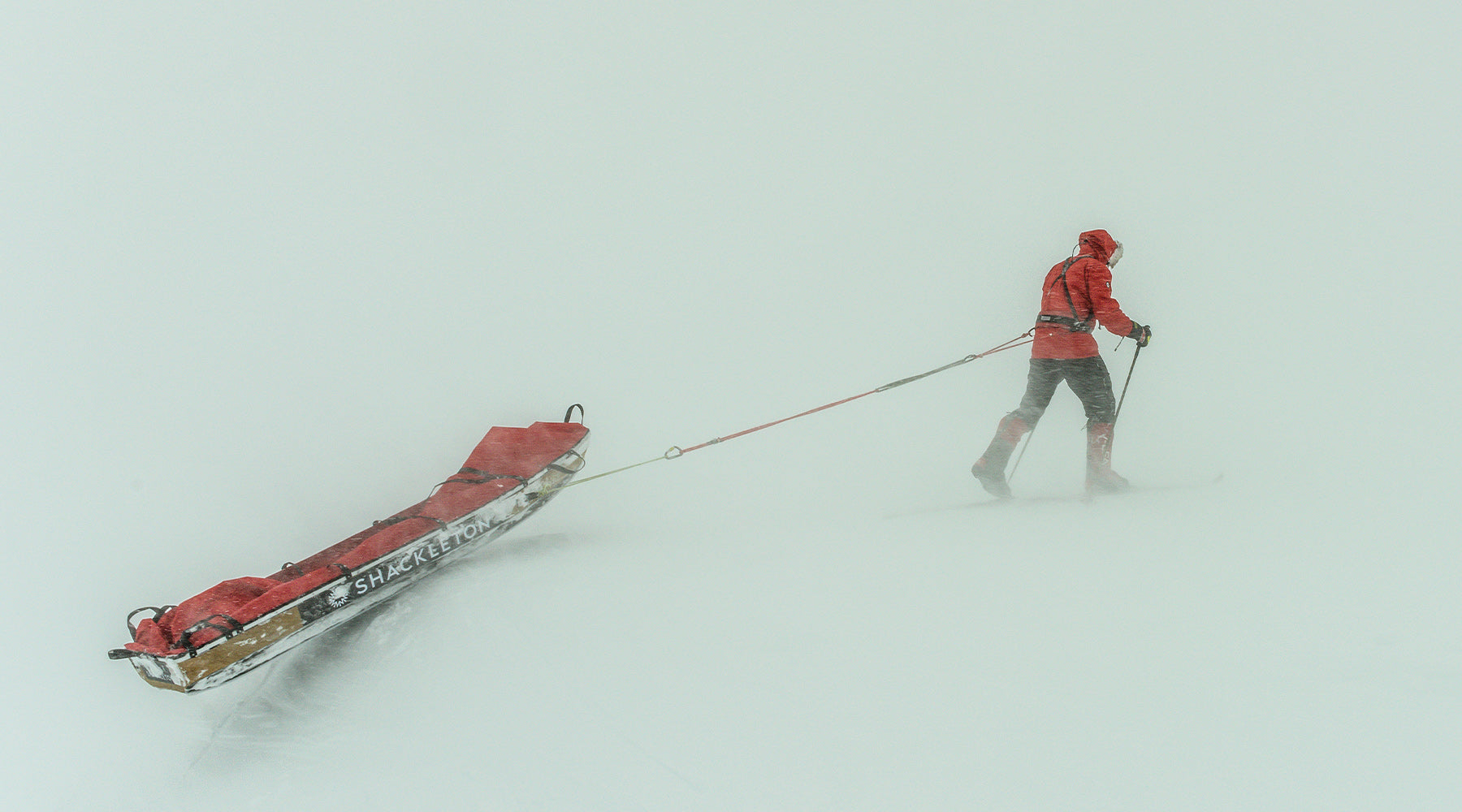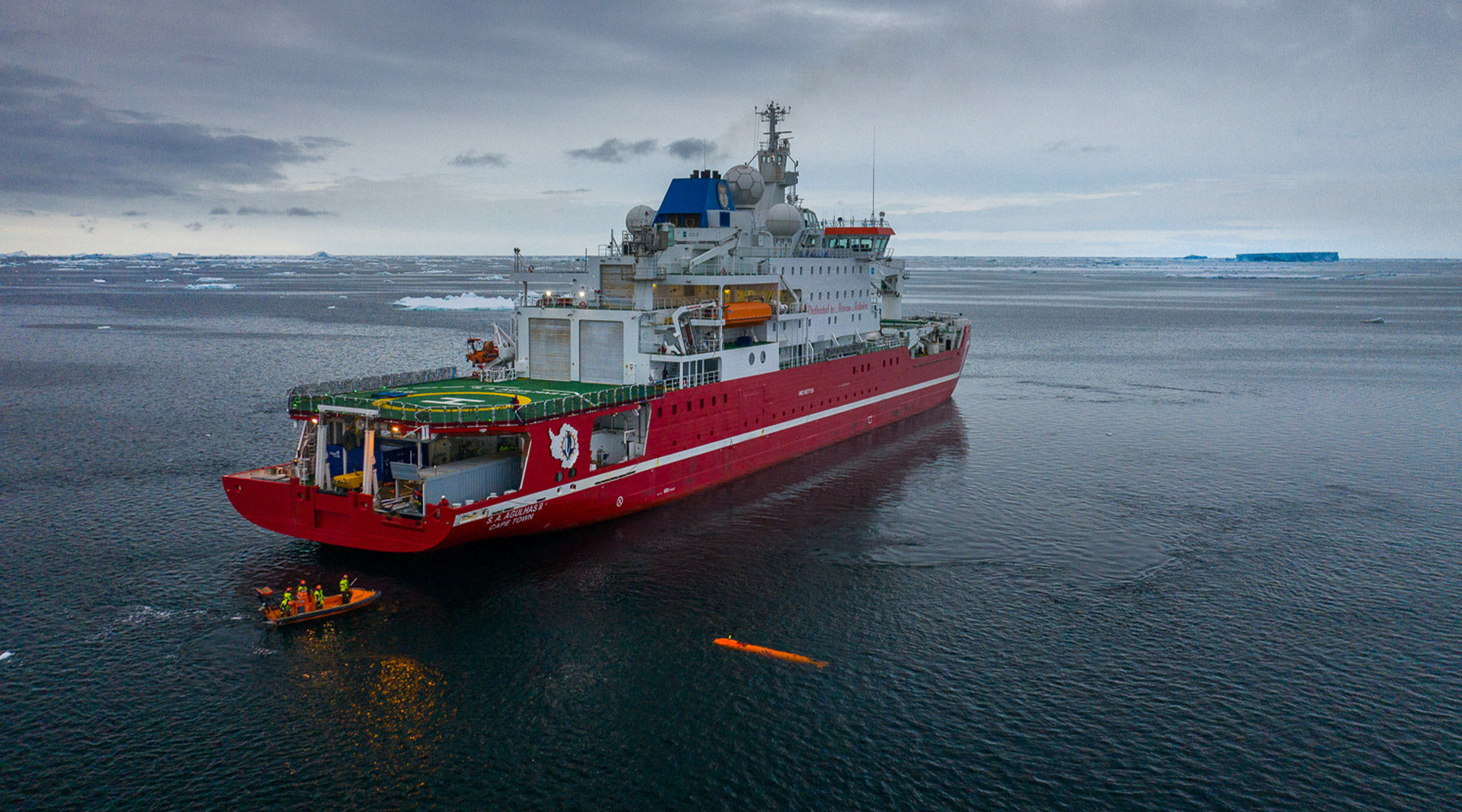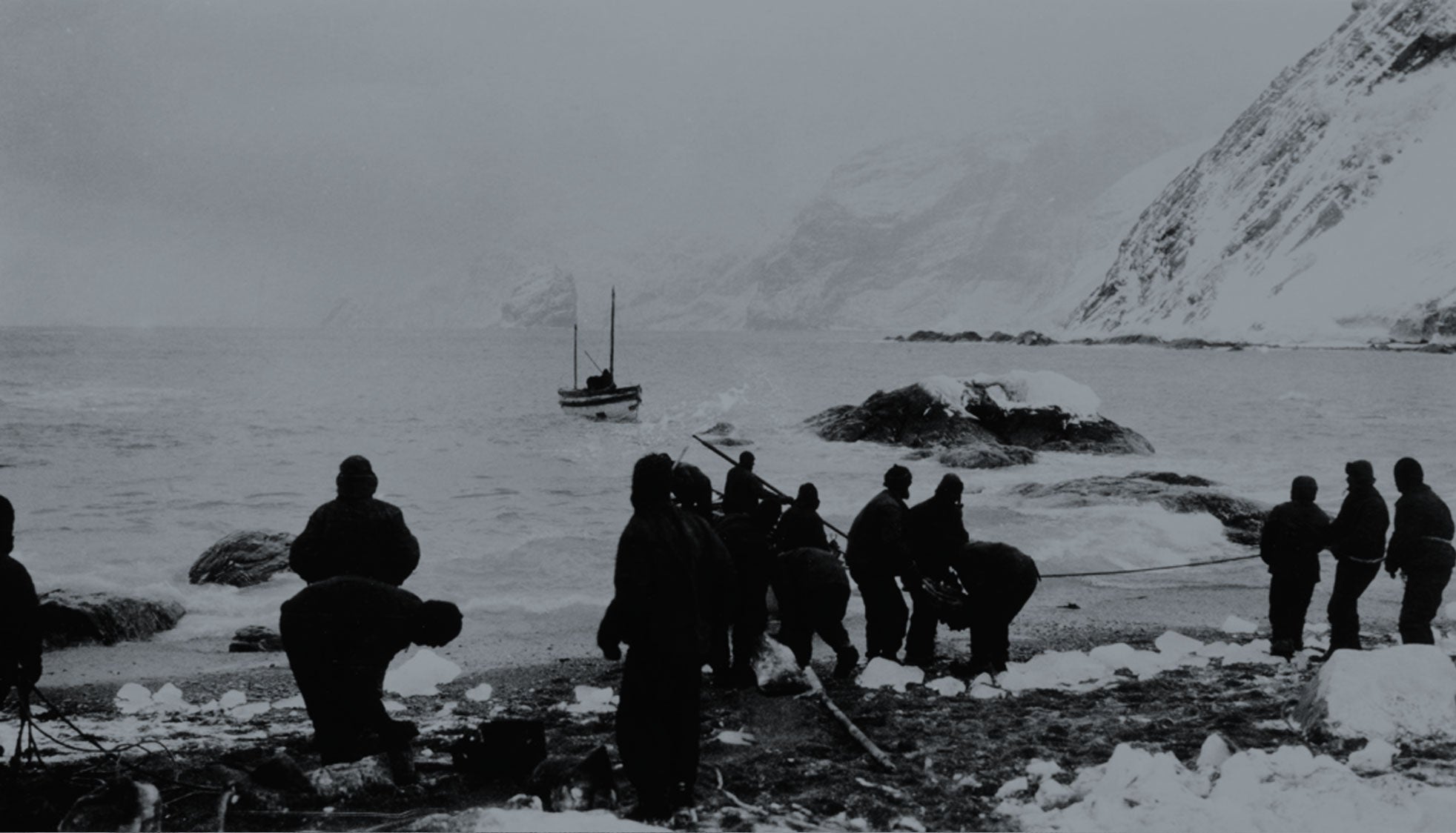
How to survive in polar extremes
We have two highly accomplished polar explorers on our team in Louis Rudd MBE, our Director of Expeditions, and Wendy Searle, our Expeditions Manager. Louis is the only person to have crossed Antarctica twice on foot and Wendy is one of only seven women to have trekked from Hercules Inlet to the South Pole solo, unsupported and unassisted. Between them, they have a wealth of experience in polar exploration and all the elements that lead to a successful expedition. Here, they share their advice on how to survive in polar extremes.
Be Prepared
It’s a well-coined phrase but 'failing to prepare is preparing to fail'. Expedition success can be made or lost in the preparation phase. It’s all about attention to detail, right down to the smallest elements and even planning for the worst-case scenario that you will hopefully never have to face. This is known as ‘Actions On’. If ‘x’ happens, I’ll have a way of dealing with it, no matter what it is.
Have a clear sense of purpose from the off. This is one of, if not the most important element to any polar expedition. Why are you doing this? You should know the answer and believe every inch of it – it will be vital to you on the more difficult days when you question what you are doing in the middle of nowhere, far from your family and the comfort of your home. A solid sense of purpose will also motivate others to support you and rally people to the cause.
Training the body for repeated long hard days by developing endurance and stamina capacity is essential. This fitness will not only make the physical demands more manageable but improve your reactions and decision-making in the face of danger or adversity. We do plenty of tyre hauling over rough terrain, strength and conditioning work in the gym, and hiking with a weighted backpack – these exercises build up strength and muscle memory for expeditions in polar extremes.
Preparation of the mind is critical. If you know that your preparation has been thorough and you’ve done all you possibly can, those last-minute doubts or niggles will be kept at bay. Constantly remind yourself that you can do this and never doubt for one second that you won’t be successful. Once that doubt creeps in it can be hard to keep it out.
Lastly, before you head off, make sure you consult widely with other experts in the field and draw on their experience. Everyone has their own opinions – listen to them all and then pull out the information that is useful and relevant to you.
Read the conditions

You need to be able to spot the signs of bad weather closing in, and then know how climate and changing conditions will affect the way you operate – the easiest of activities will suddenly become very hard at minus 30ºC. You need to be able to do things with large gloves on and in low visibility, and understand how to protect electronics and keep batteries warm by using your body heat.
Dressing for different conditions can be a matter of life and death – being too hot can be as dangerous as being too cold. It’s a fine balance. Remember to protect areas of your body that are most vulnerable such as your hands and face.
Understand Nutrition
This is a very complex topic, and one we will go into in great detail in its own article. But as a general rule of thumb, stay well hydrated and aim for 6000 calories a day; a balance of weight against calorific requirement. The key is to keep yourself fuelled and be as efficient as possible in your exercise to not expend more energy than is absolutely necessary.
Create a snack bag of foods you will be happy to eat for a long time – you want foods you won't get bored of and that you can still eat when they’re deep frozen.
First aid experience
If one thing is for certain, it's that there will be moments of pain on an expedition. You need to be able to fix yourself up as best as possible to lessen this pain and allow yourself to keep going. Consult with doctors beforehand and take relevant courses to bolster your understanding of dealing with bad blisters, cleaning cuts, treating burns, etc. You never know when this may come in handy. You also need to be able to recognise the signs of frostbite, dehydration and windchill.
Have the right Gear

For polar journeys, the right gear is critical as your life depends on it. Thoroughly test every single item you plan on taking and know how to service, take apart and repair it. You must carry a comprehensive spares kit.
When it comes to clothing, you want to have absolute trust in what you wear. Understand the benefits and use of every item and how layering affects your core temperature. Recognise when you are getting too warm or too cold and adjust before it's too late. Don't compromise on the best: polar environments demand apparel that has been properly tested, proven and developed to the very highest standards.
As with everything you take into a polar environment, weight must be considered. You are hauling all this stuff behind you and grams matter over the course of a long journey. Like any expedition planning and decision-making, it’s a balance of risk and wisdom. Do you need two cookers – what if one fails? Or two sets of skis – what if you break one? But if you decide to take extras, you have more weight to move.
Regular expedition gear performs differently in extreme cold, and it’s important to test it out and prepare for it. Some batteries, for example, which usually last up to eight hours in more temperate climates may only last minutes in Antarctica. The northern hemisphere and Arctic Circle tend to be wet, whereas Antarctica is dry – you need to have the right kit for the environment you are in.
Know Your Limits
The mind generally gives out when the body is only at 40 per cent capacity – you need to know your limitations and be capable of differentiating between mental resilience and recognising that you are pushing yourself too far. It’s hopefully not something you’ll need to experience, but you need to know when to stop, when pushing on may put your life in danger; just as Shackleton turned around 97 nautical miles short of the South Pole on the Nimrod Expedition. His decision saved his men.
When you’re cold and/or tired, your ability to make good decisions is impaired. It comes back to training, and experience, knowing how to recognise the signs that you’re fatigued and being able to deal with it quickly.



